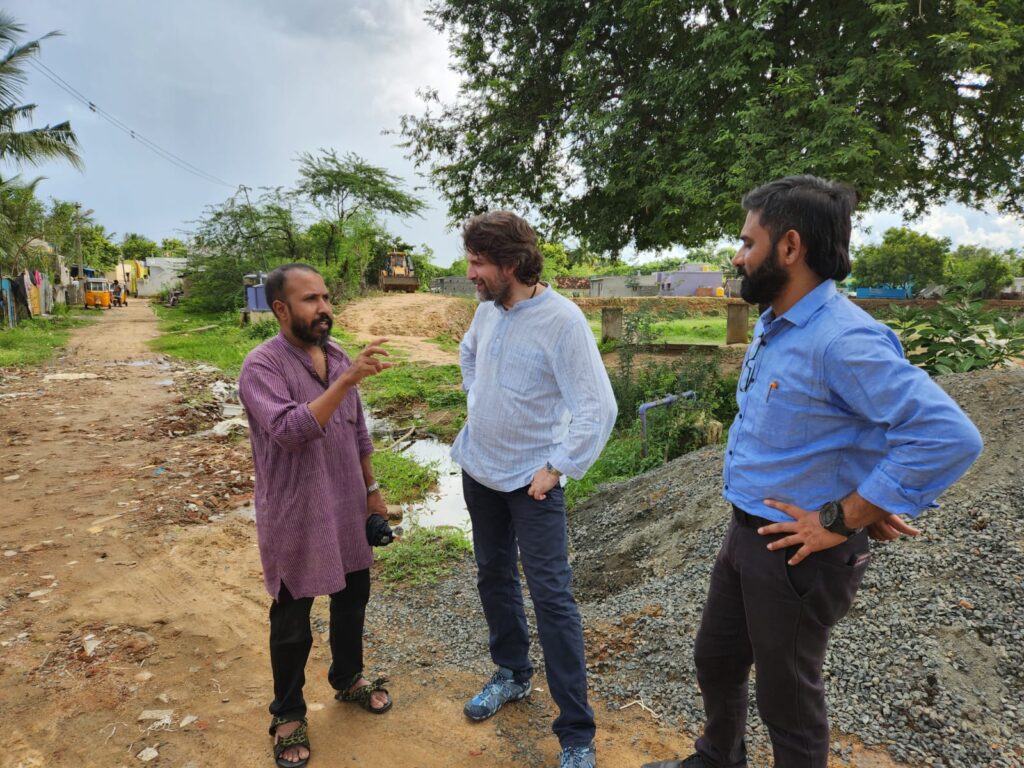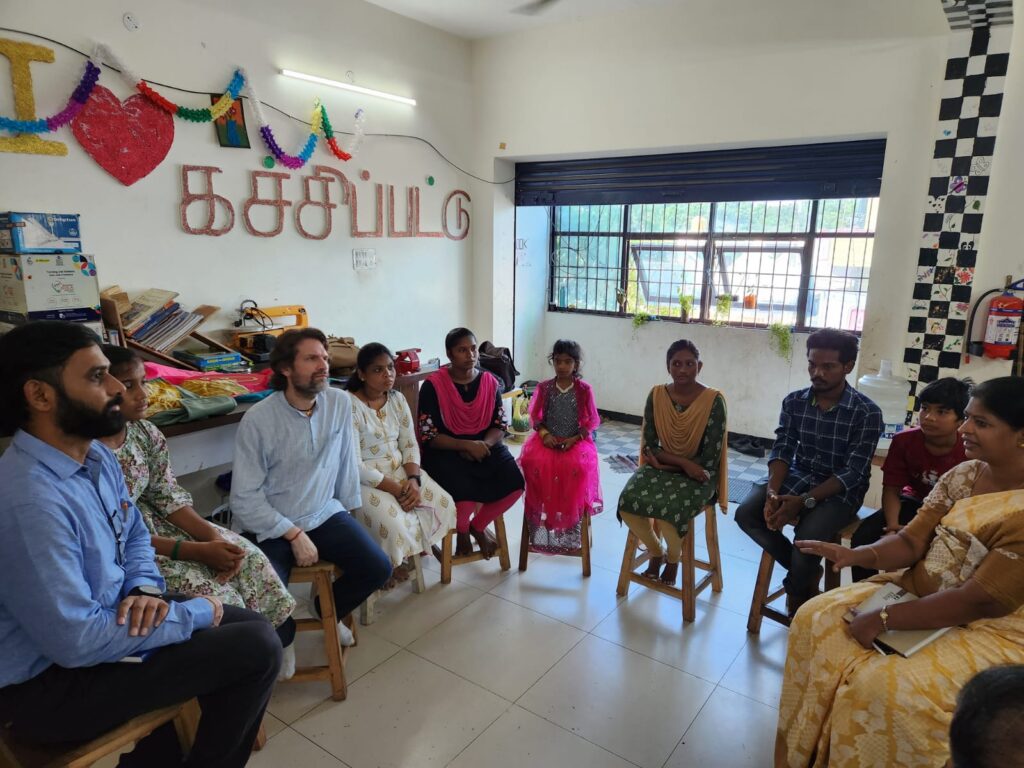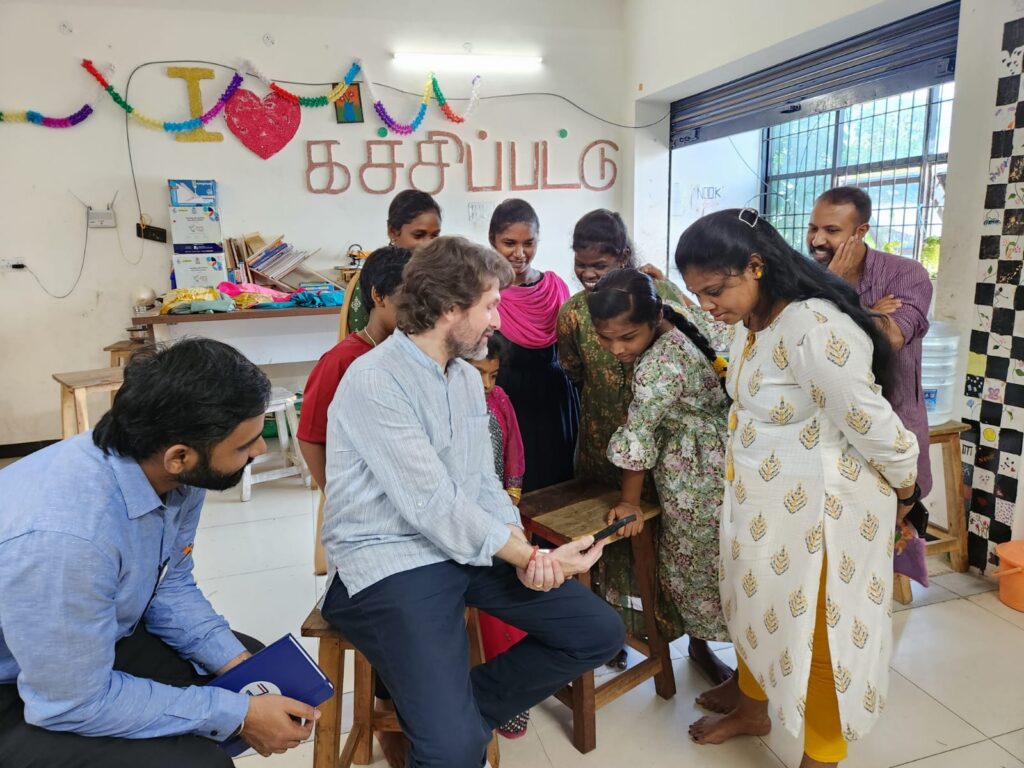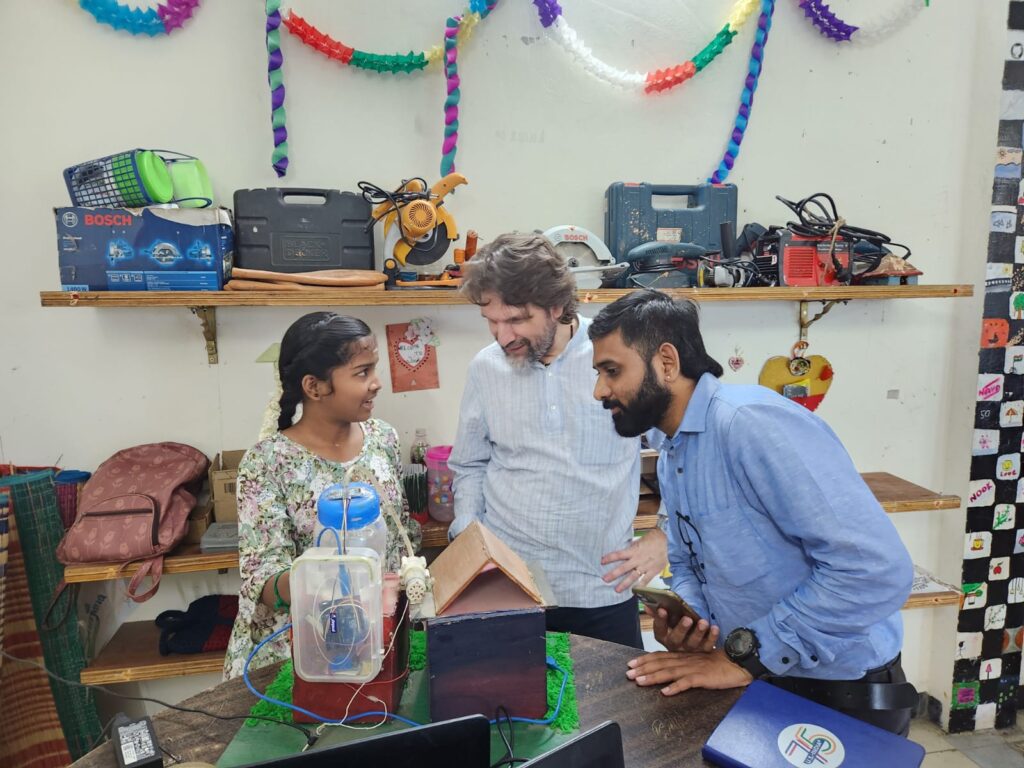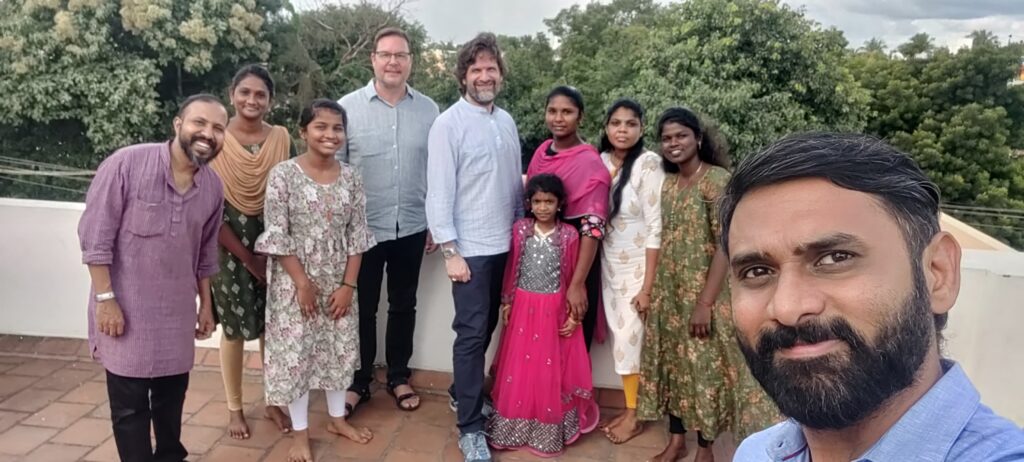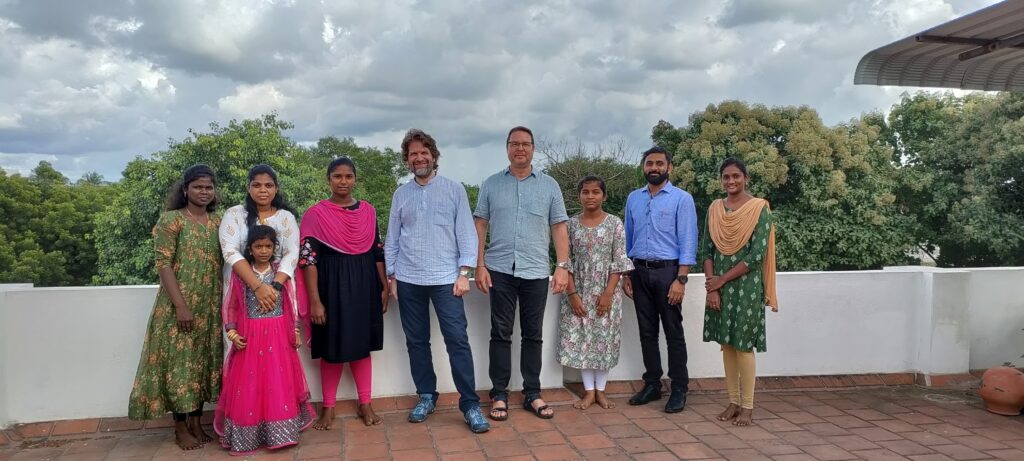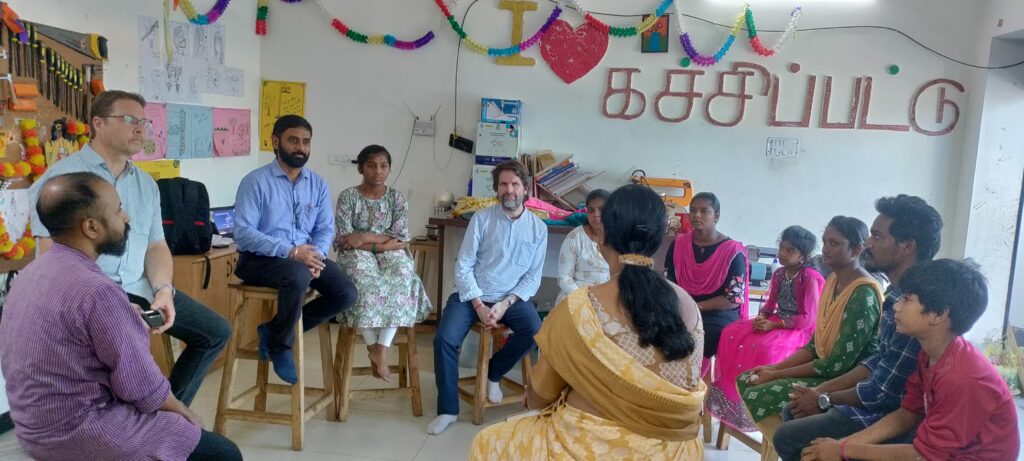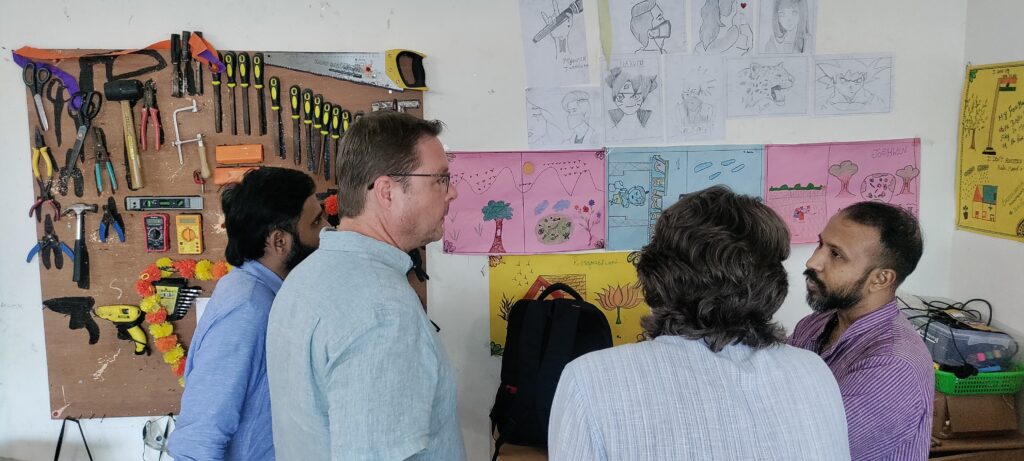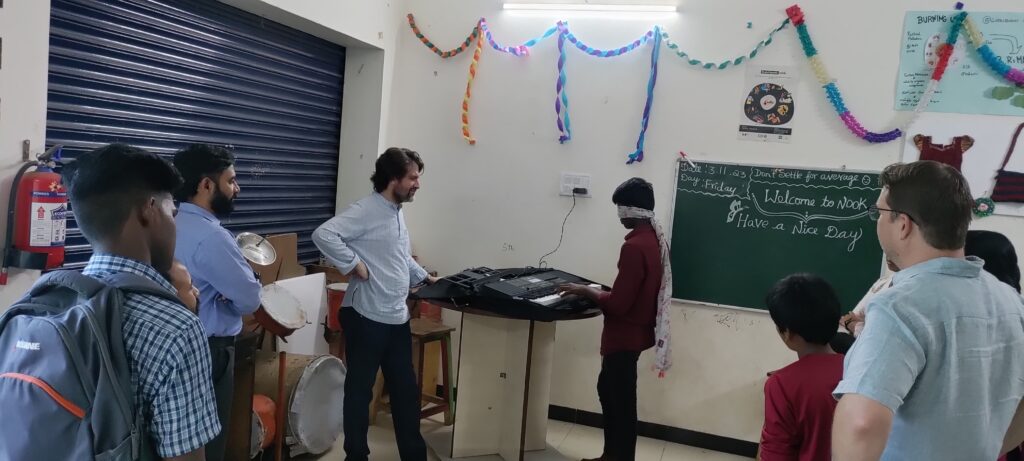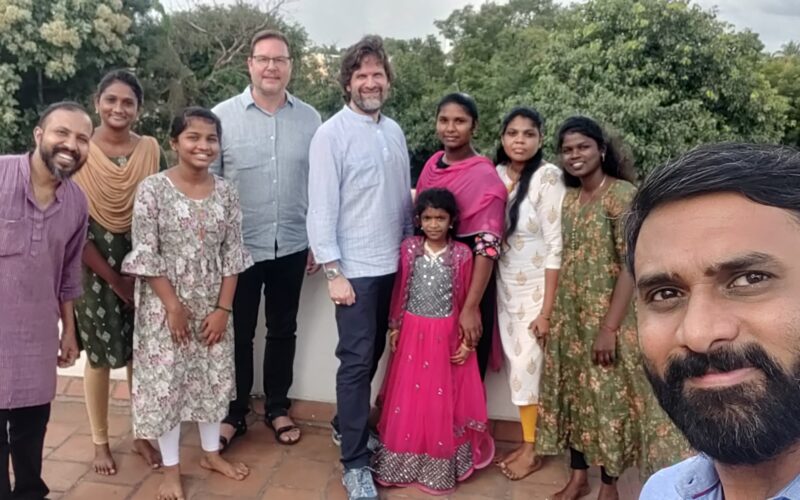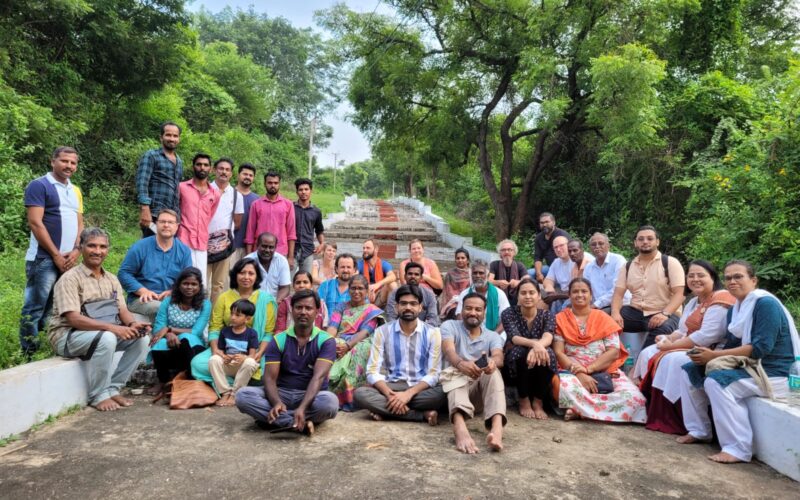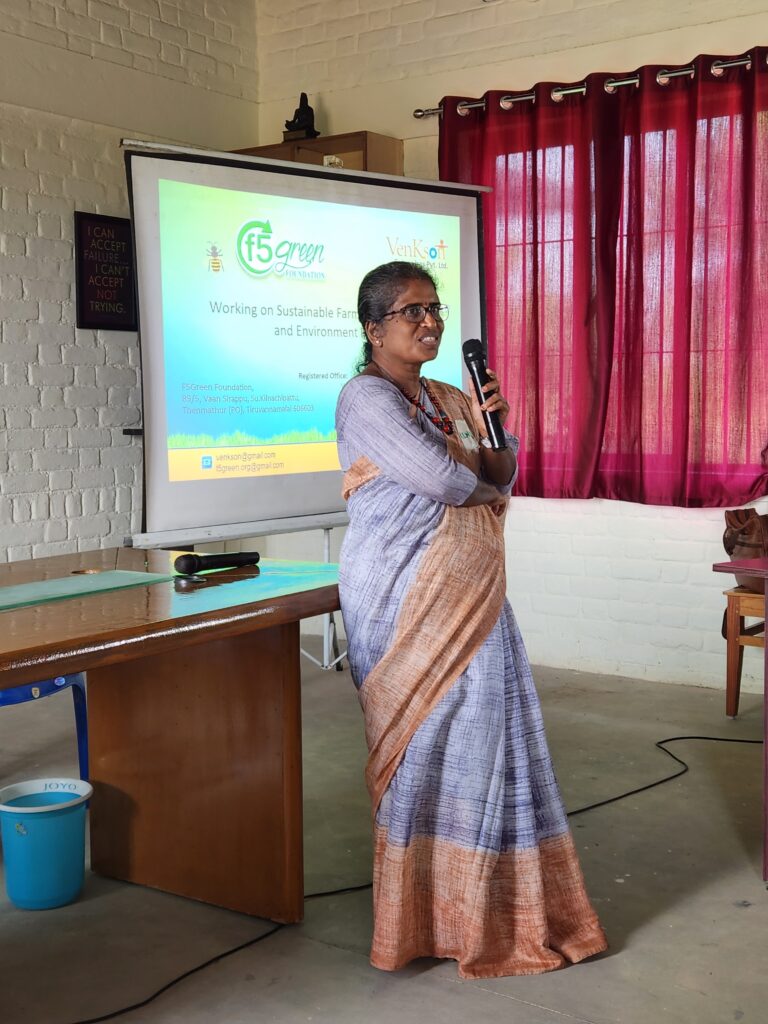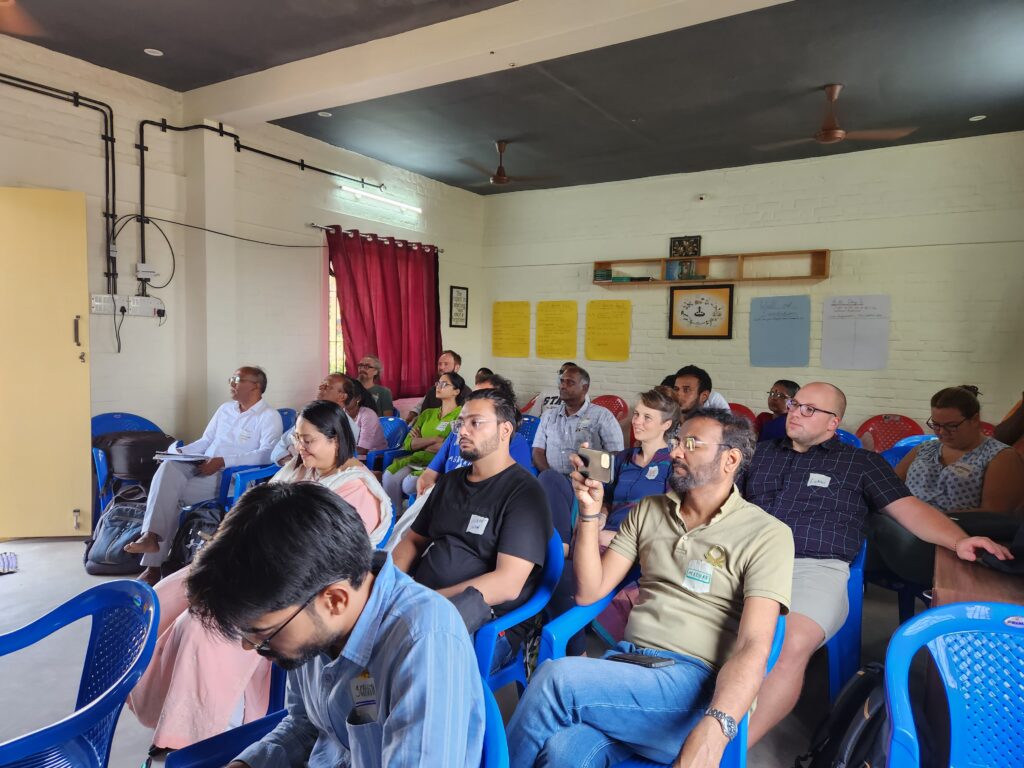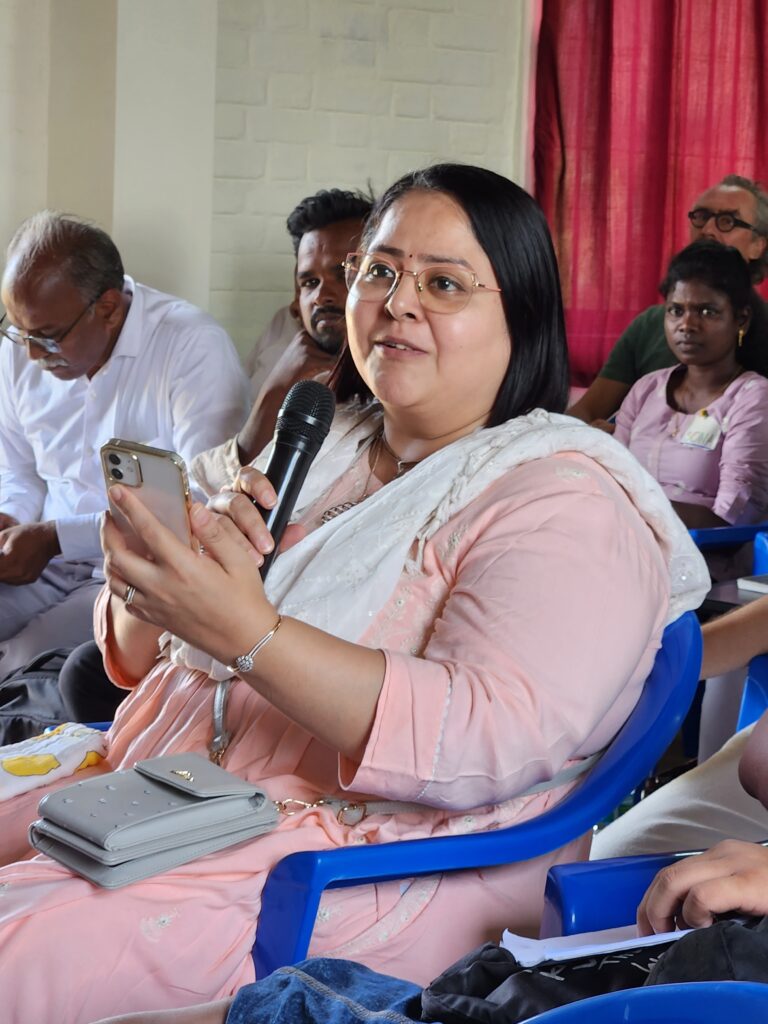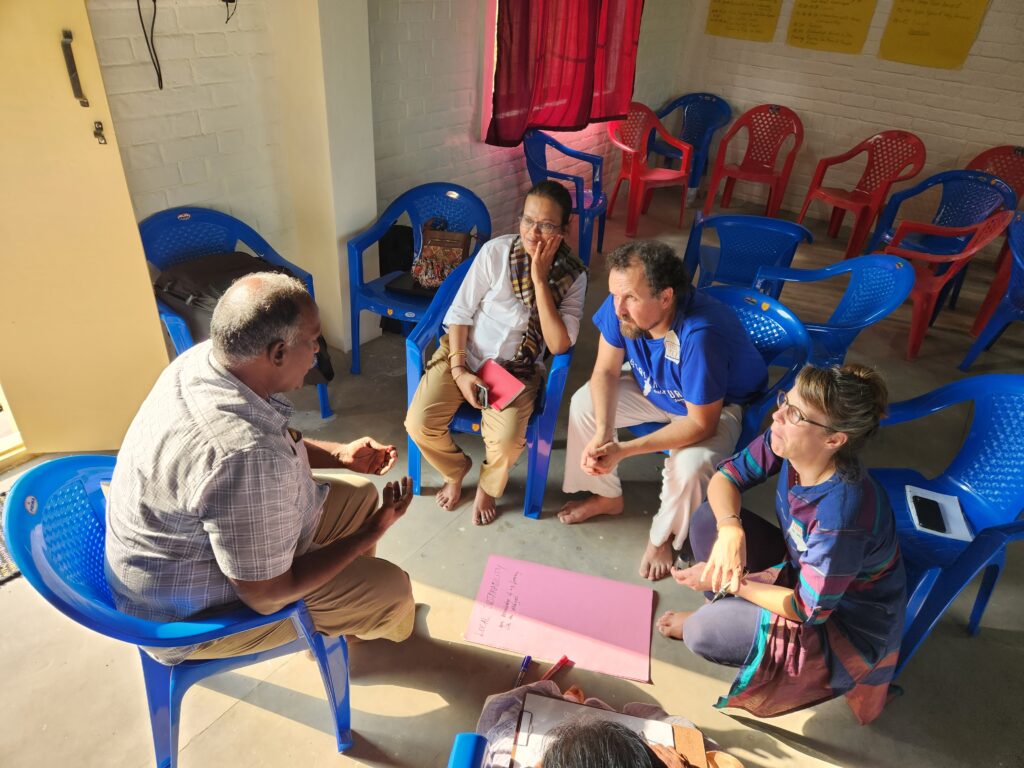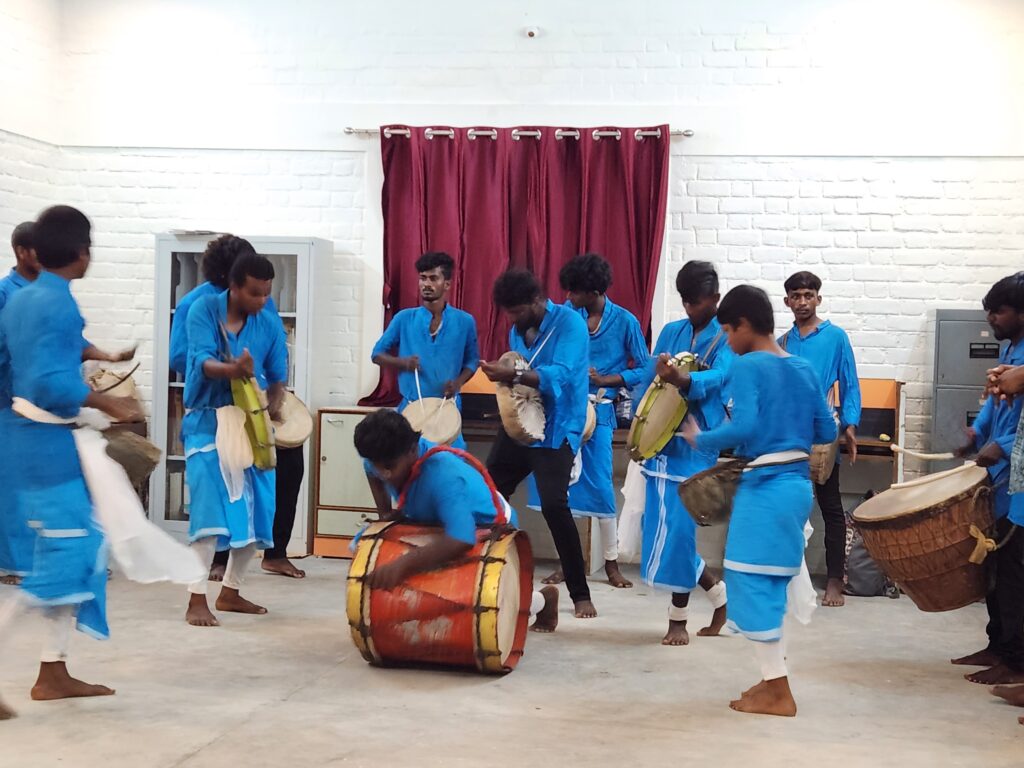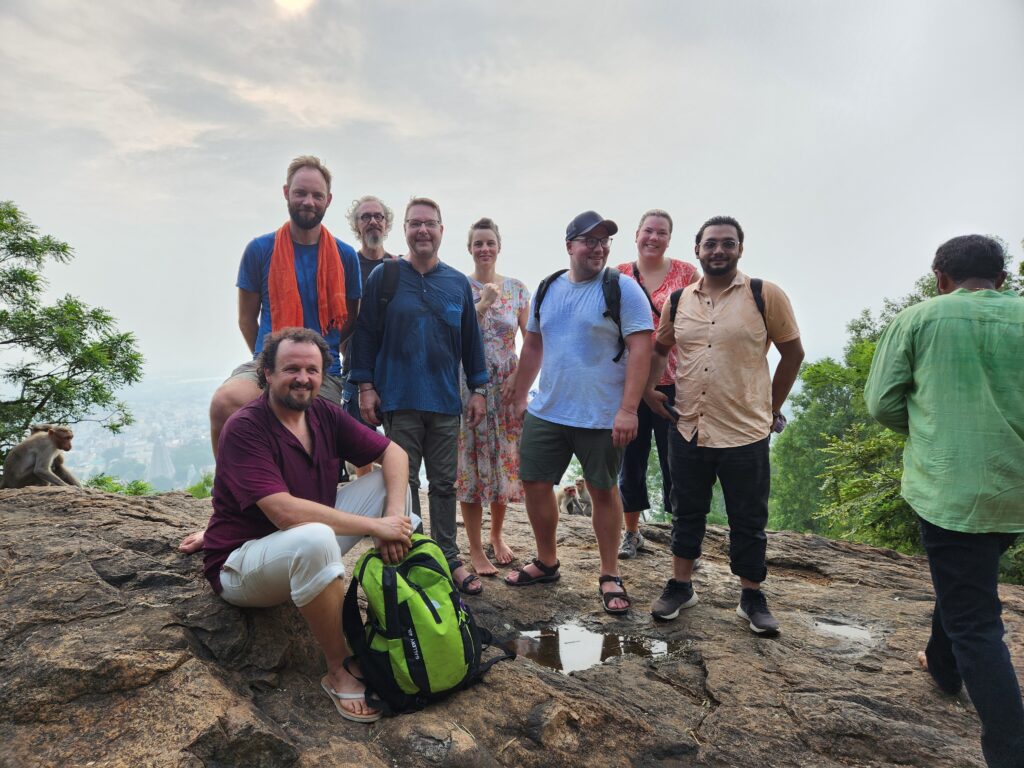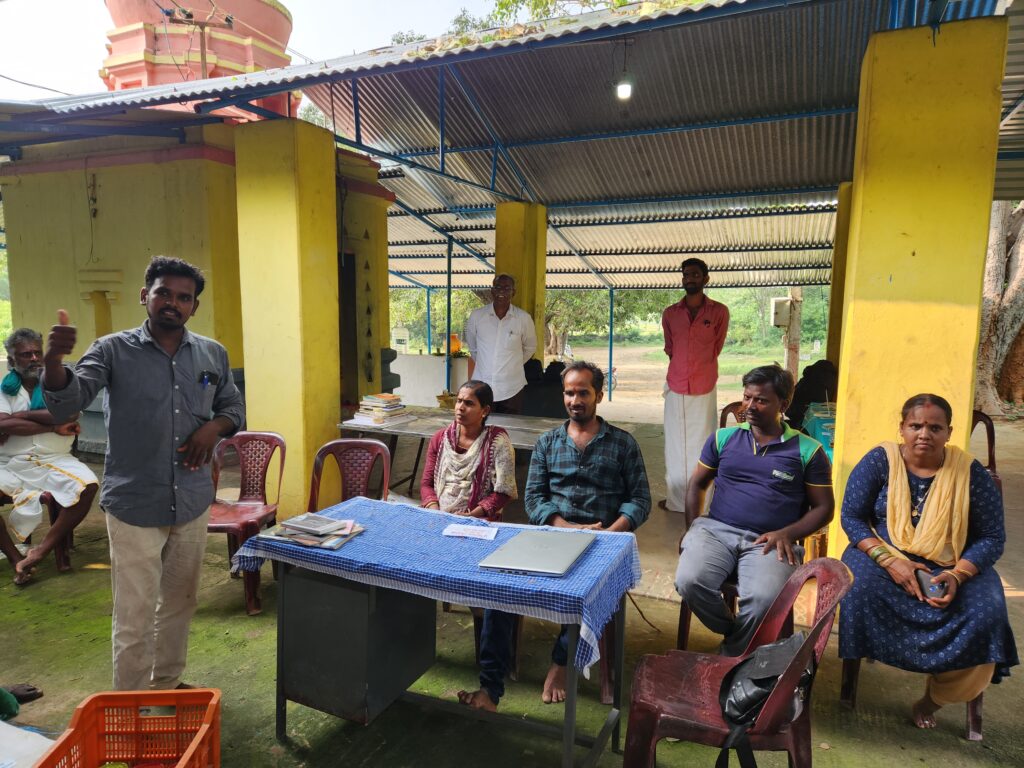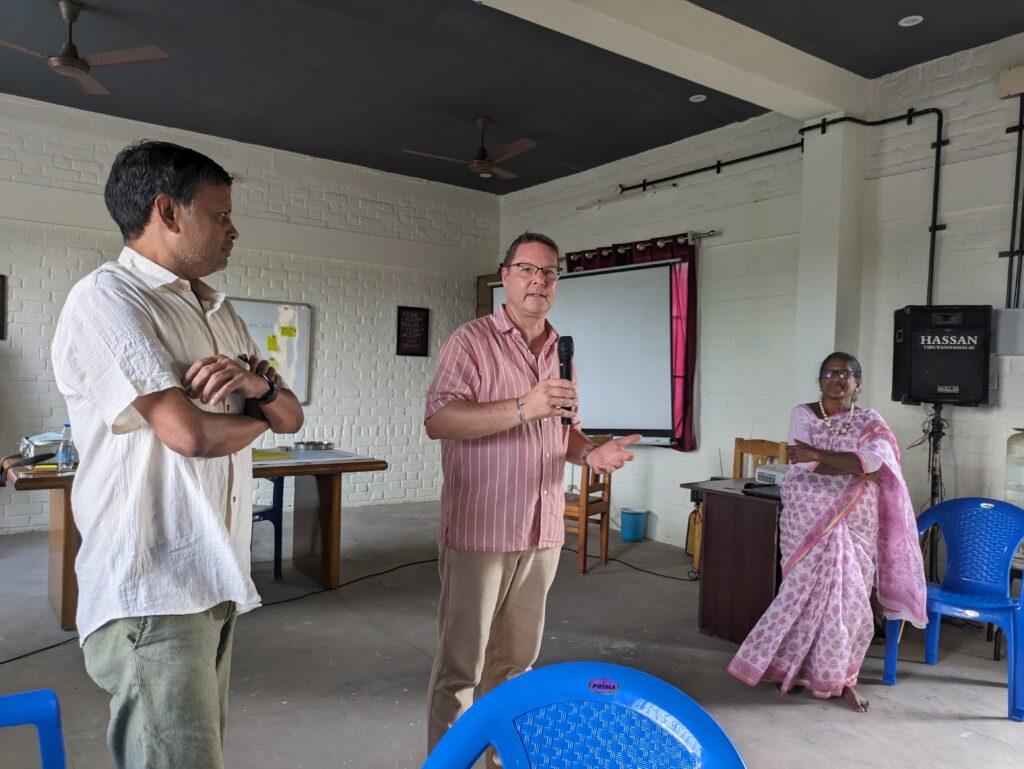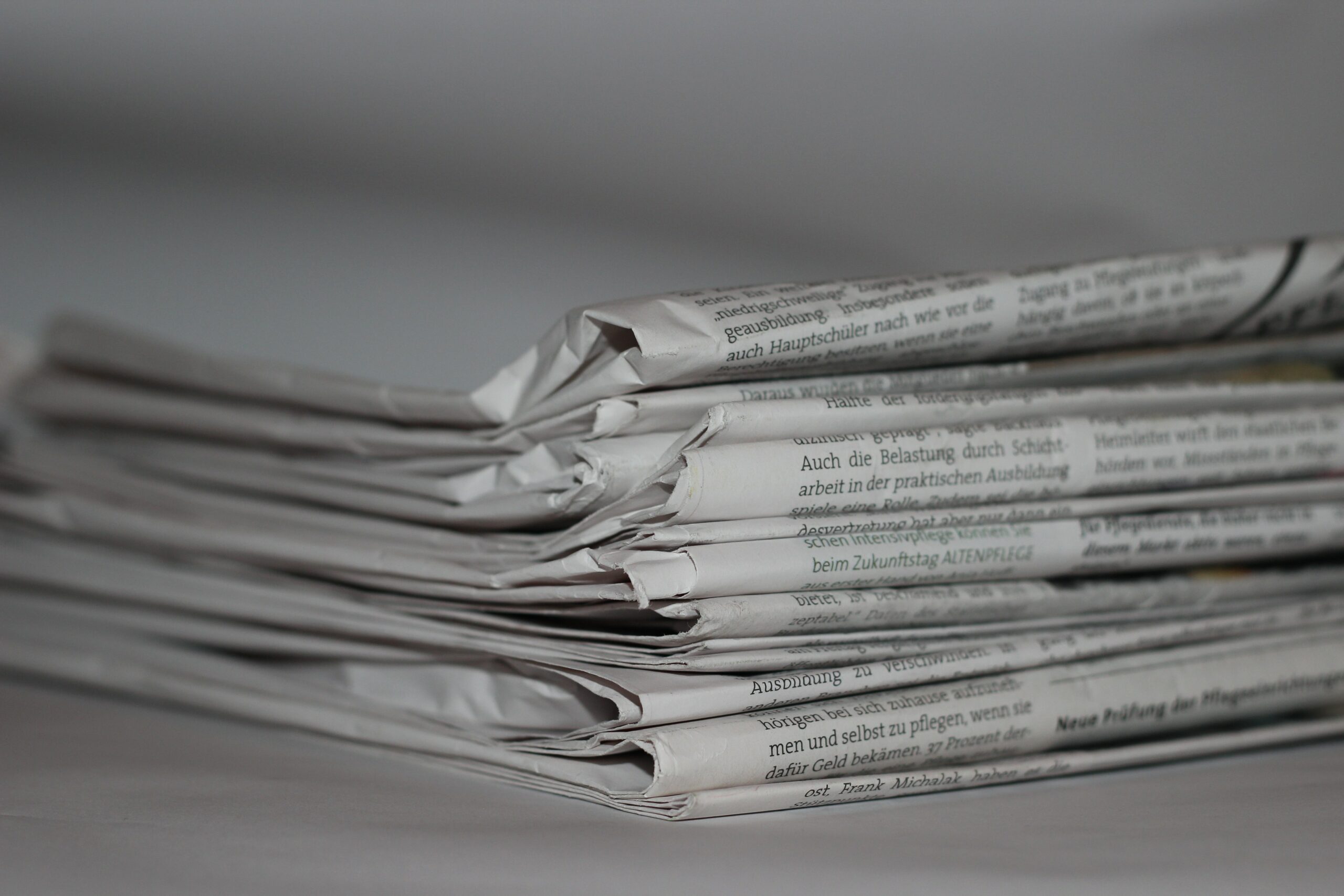Last Friday, our Katchipedu Nook Self-learning Space was honored by a visit of Mr. Scott Hartmann, Cultural Affairs Officer at the U.S. Consulate General in Chennai, and his colleague Mr. Gokula Selvarajan, Experiential Learning Coordinator. They took a keen interest in the project activities, enjoyed the fun interaction with the learners, and also participated in a field visit to Katchipedu village. The Consulate has many opportunities for funding the promotion of individual learners in various ways, including scholarships and beyond, which also offers workshops for further qualification. We are looking forward to more collaborations in the future. A big thanks for your visit!
